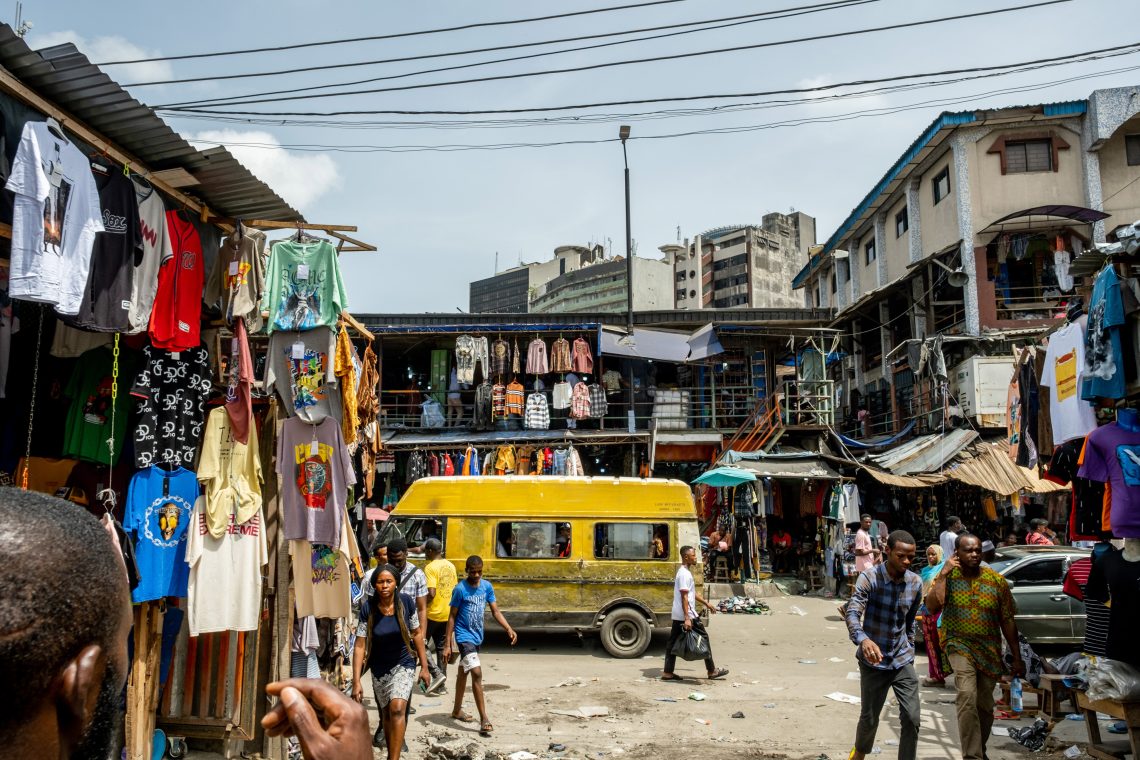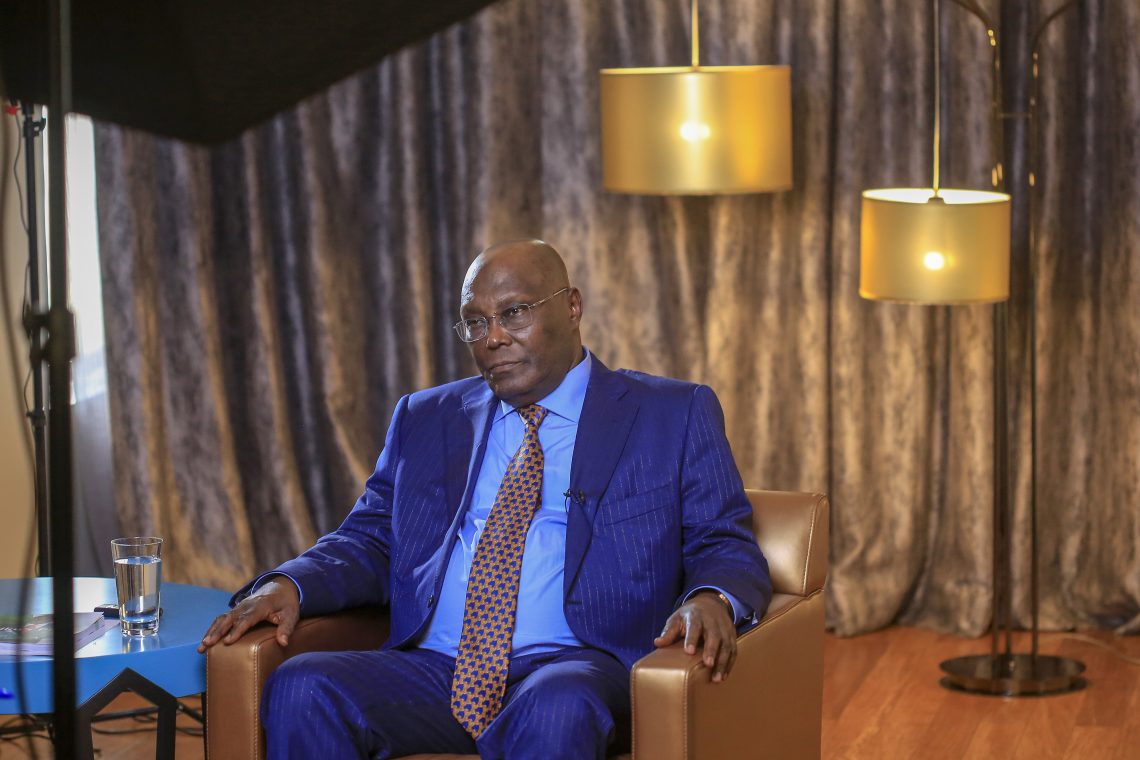Nigeria at a critical juncture
Nigeria’s next government will inherit several stiff challenges, and it is yet unclear whether abundant resources will translate into growth.

In a nutshell
- Under President Buhari, the Nigerian economy has declined
- Ethnic and religious divisions still undermine national unity
- The next government will need to address urgent issues to avoid disaster
Amid many uncertainties, Nigeria’s 2023 presidential election will certainly bring a change in leadership, as President Muhammadu Buhari completes his second and last term in office. Whoever succeeds him will face multiple crises: a contested political system, inflation, high rates of youth unemployment, violent conflict, terrorism and food insecurity.
Given Nigeria’s regional influence and booming population, the extent to which the next administration will be able to pave the way to growth, security and stabilization will have far-reaching consequences for all of West Africa.
Zoning and federalism
Nigeria is a mosaic of nations with different geographic, economic, ethnic and religious characteristics. Maintaining a unitary state in the face of such diversity has always been a challenge.
Since the return to civilian rule in 1999, power turnover in Nigeria has taken place according to an unwritten rule observed by the country’s two main parties, according to which the presidency and the vice presidency must alternate between the north and the south and also between the six established geopolitical zones. This policy of zoning is designed to ensure that each region and ethnic group has fair access to power. However, as evidenced by the legacy of President Buhari – who is from the state of Katsina in northern Nigeria – the policy is more about accommodating the ambitions of the political elite than about regional developmental outcomes.
Much will depend on whether the economy can keep up with demographic growth.
The federal solution was adopted in 1954 but was interrupted during the period of military rule when political changes and the oil boom resulted in the centralization of power. However, despite the return to civilian rule and the federal principle being inscribed in the constitution, the Nigerian political system is often described as a federal constitution without “true federalism.”
Fiscal federalism, in particular, remains problematic, as resource-rich states contest the way wealth is redistributed, while poorer states depend on Abuja. This is a major obstacle to federalism, as one of its basic assumptions is the financial autonomy of the federal states vis-a-vis the central government. As tensions between the federal and state governments reinforce ethnic and religious divisions, Nigerian federalism remains a work in progress.
Ailing economy
The challenges of the Nigerian economy – the excessive size of the government and its high maintenance costs and limited achievements – are mirrored in the country’s budget. Around 70 percent covers salaries and allowances, while only 30 percent is devoted to capital expenditure. For the past 11 years, 72 percent of the health sector budget has gone to salaries and running costs.
The Nigerian economy still depends on oil and is vulnerable to fluctuations in domestic production and global prices. It is also heavily dependent on state handouts. Fuel subsidies in 2022 are expected to cost $9.6 billion. While President Buhari had announced these would be rolled back, the decision was reversed amid inflation and rising fears of unrest.
A daunting challenge for decision makers – one that is unlikely to be solved in the coming decades – will be to create adequate conditions that foster growth and job creation so that economic conditions keep pace with demographic growth. This will not be easy, given the structural challenges. After two decades of robust growth, the economy is now stagnant. At less than 1 percent during the past six years, economic growth has been superseded by a demographic expansion rate of 2.6 percent a year.

The end of the commodities boom, the Covid-19 pandemic and a retreat in global trade and integration have all harmed the Nigerian economy. But even taking these factors into account, the performance of the Buhari administration was far from impressive.
The last seven years have been characterized by a “command and control” approach to economic management based on excessive regulation, high levels of public spending, import substitution, subsidies and welfare programs. Key indicators suggest that “neo-Buharism” has largely failed. Since 2015, both internal and external debt substantially increased, with the debt stock rising from $28 billion to $72 billion. The unemployment rate quadrupled to 33 percent, making Nigeria one of the worst performers in the world, while the underemployment rate is estimated at 22.8 percent. In June 2022, inflation stood at 18.6 percent.
Nigeria’s next president will inherit a dire economic situation. A pressing matter will be to address the growing debt. Amid a global recession and with significant borrowing from China and commercial creditors, debt restructuring will be an arduous task.
In the medium to long term, much will depend on whether the economy can keep up with demographic growth. While fertility rates are already declining, the population will continue to increase in the coming decades. If things remain as they are – anemic growth, slow industrialization, high unemployment and fragility in the face of global shocks – political instability and violence will likely increase. Economic diversification and decentralization will be essential for the Nigerian economy to overcome some of its structural problems.
Multiple security challenges
Reforming Nigeria’s federalism and fixing its struggling economy appear even more daunting considering the security outlook. Terrorist groups such as Boko Haram and the Islamic State West Africa Province remain active in the impoverished northeast of the country and are expanding their operational reach, as evidenced by the recent attack on the Kuje prison near Abuja. The number of insurgent groups has been rising in Nigeria, reflecting the state’s fragility or absence in many parts of the territory.
Regardless of the winner, the challenges ahead are such that even under a best-case scenario, it will take several more years to reap the benefits of reform.
In central Nigeria, violence between farmers and herders over water and land has escalated in recent years, with occupational and ethno-religious divisions feeding off each other. In the south central regions, violent banditry has become the main threat to security, as organized groups engage in cattle theft, kidnapping, armed robbery, murder and rape. In the south, separatist movements have intensified their activities, contesting a state that they deem inefficient and predatory. In the megacity of Lagos, the crime rate has been increasing.
Nigerian security forces are under-equipped and lack effective leadership. They are often accused of corruption and human rights abuses, making them ill-suited to address the challenges described above.
Scenarios
The extent to which the next administration will fail or succeed in tackling each of these challenges matters well beyond Nigeria. If the country remains trapped in a vicious cycle of poverty and violence, it will negatively affect the entire West African region. Moreover, with a population expected to double in size and reach 400 million by 2050 and 40 percent of Nigerians living below the poverty line, Nigeria is the most populous country in the world’s most impoverished region. Even a modest reduction in poverty could make the country an example, whereas failure would make it a cautionary tale.
The presidential nominees of the two main parties – the Peoples Democratic Party (PDP) and the All Progressives Congress(APC) – have different priorities and strategies to address Nigeria’s main problems.
Atiku Abubakar, the flagbearer of the center-right PDP, was vice president between 1999 and 2007, and privatized sectors like telecommunications and banking. His victory would represent a departure from current economic policies. The PDP candidate presents an economic agenda based on three principles: private sector participation; the end of the public monopolies over infrastructures and a market-oriented approach to economic challenges.
The APC candidate, Bola Tinubu, served as the governor of Lagos, Nigeria’s smallest but most populous state, from 1999 to 2007. Since the transition to civilian rule, Mr. Tinubu has been a key figure in Nigerian politics, often acting as kingmaker. While of the same party as president Buhari, Mr. Tinubu has worked in the private sector in the United States and in Nigeria and would likely adopt a different and more technocratic approach to governance, especially on the economic front.
Despite the differences between the two candidates, the next president is expected to adopt a less centralized approach to the economy and more business-friendly policies. Regardless of the winner, the challenges ahead are such that even under a best-case scenario, it will take several more years to reap the benefits of reform.







